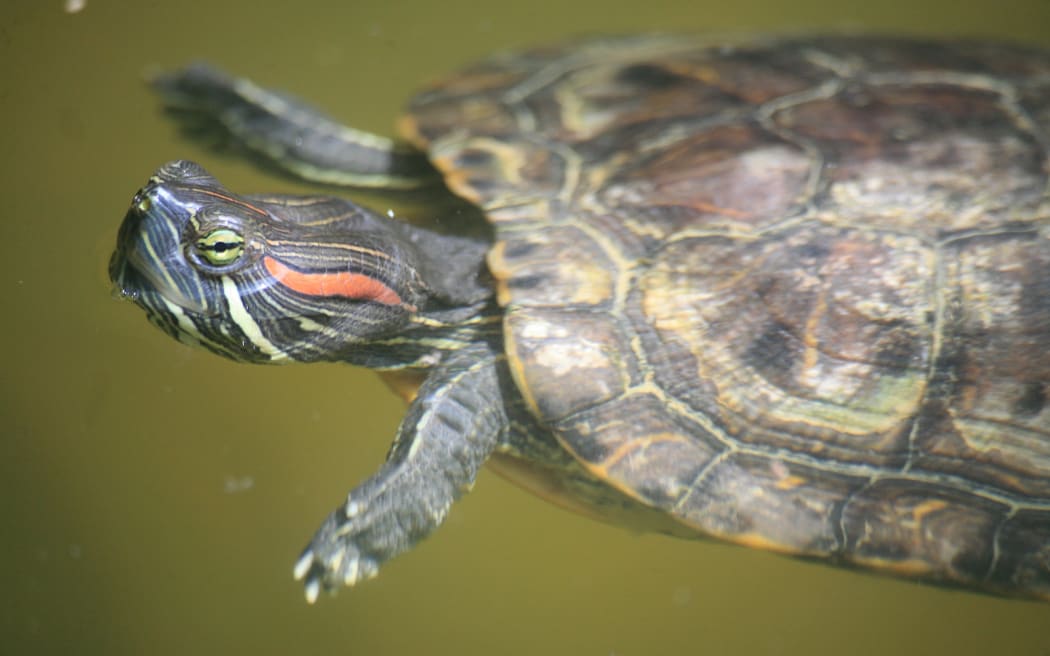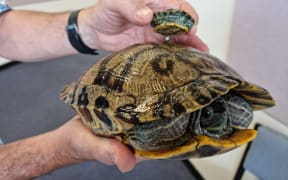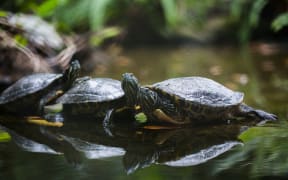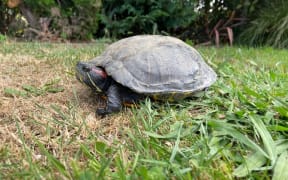
Red-eared slider turtles can destroy native habitats and entire populations can spring from a single individual. Photo: Laszlo Ilyes / Creative Commons
A rogue turtle is raising alarm bells in Tākaka and has Tasman District Council scrambling to trap and euthanise it.
The turtle, a red-eared slider, was probably a pet that was released into the environment.
However, red-eared sliders are one of the most invasive pest species on the planet and is an eradication pest under the regional pest management plan.
Though they may look cute, the turtles could have a devastating effect on native wildlife.
"They obviously came in as pets, and people either got bored with them, tired with them, and just thought 'oh, I'll go and put it in the stream and it'll be fine'," said the council's communications manager Chris Choat.
"Problem is, they eat everything, and they can destroy habitats of a wide variety of things."
Being omnivorous, the turtles will eat aquatic plants, insects, eels, small fish species, and even ground-nesting birds.
If their voraciousness wasn't worrying enough, an entire population can quickly spring from a single individual.
A female red-eared slider can remain reproductive up to five years after mating and can produce several clutches of eggs each year over that time, Choat explained.
"Basically, they breed quicker than rabbits."

Council staff are "reasonably confident" that there's only one turtle in Lake Killarney and a specifically-designed live capture trap at the lake is being frequently monitored so the turtle can be euthanised once caught.
All residents on the western side of the lake, including the Abbeyfield House, have been spoken to about, and local iwi have been consulted, with feedback supporting the control programme.
This isn't the council's first tango with the turtles.
Red-eared sliders have been previously spotted in Richmond's Borck Creek and in the Motueka River and were subsequently dealt with.
"And for some reason, every so often, one will pop up in Killarney," Choat said.
"If we don't get them out, or if it breeds - if it's a female - we're in trouble. Anybody that sees them, please report them."
- Local Democracy Reporting is local body journalism co-funded by RNZ and NZ On Air




